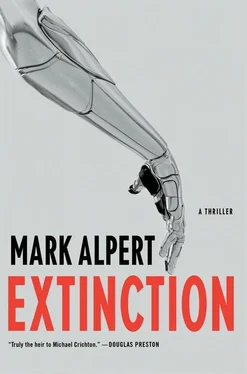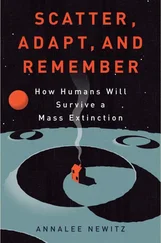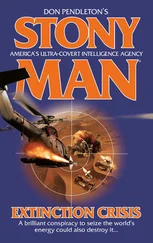But further progress didn’t come easily. While Jim focused on his prostheses, Arvin tackled the biggest challenge: building a computer that could mimic all the brain’s functions, everything from visual processing and speech recognition to motor control and decision making. He worked on the project for years, but ultimately all his efforts fell short. Although he could assemble a machine that, like the brain, had billions of logic gates and trillions of connections, he couldn’t reproduce the brain’s remarkable plasticity, its ability to rewire itself to accommodate new information, constantly strengthening and weakening the links between nerve cells. The failure disheartened Arvin. He became depressed and irritable.
At the same time, Jim started to think about establishing his own business. Thousands of maimed soldiers were returning from Iraq and Afghanistan, and he felt an obligation to make his prostheses available to them. But when he told Arvin about his plans to move back east and start a company that would custom-design prostheses for the amputees at Walter Reed, the old man was livid. “You’re breaking your promise!” Arvin had yelled. “You’re giving up!” Their argument escalated into a shouting match, nasty and loud. The memory of it still made Jim wince, even four years later. It spoiled all his earlier, fonder memories.
Now they came to the ugly metal desk at the center of the lab. Arvin slumped in his chair, looking exhausted. His cheerful arrogance was gone. “I don’t blame you for hating me,” he said, staring at the floor. “I hate myself right now.”
“Look, you need to tell me what—”
“I know, I know. You’re worried about Layla. They told me you’d come here and try to talk to me.”
Jim was confused. “Told you? Who told you?”
“My handler. Or sometimes he calls himself a liaison. A Liaison to the Powers That Be, he says.” Arvin grimaced. “But I know who he works for. He’s CIA.”
There it is, Jim thought. The Guoanbu document he’d viewed on Kirsten’s computer had been right on the money. “What’s your handler’s name?”
“He won’t tell me. He says I don’t need to know. The only thing I need to know, he says, is that he’ll arrest me if I don’t keep my mouth shut. That’s why I was avoiding you.”
Jim gritted his teeth. He’d met plenty of CIA agents when he’d worked for the National Security Agency, and he’d disliked nearly all of them. The cowboys from Langley had no respect for anyone else in the intelligence community. They always insisted on doing things their own way, even when they were horribly wrong.
“Did he also tell you that Layla’s in danger? And that a Chinese spy almost drilled through my left arm to find out where she was?”
“He said he had everything under control. And that talking to you would only jeopardize Layla.”
“He lied to you, Arvin. The CIA does a lot of that. How the hell did you get into bed with these guys?”
Arvin gestured at the nearby lab tables. “Look around. You know how much this equipment costs. Singularity spends a hundred million dollars a year on research and development. We’ve had some successes, but our revenues aren’t covering our expenses anymore. That’s why I arranged the dog and pony show you just saw, to bring in some new money.”
“So what happened? Did the CIA offer you a loan?”
“The agent contacted me about a year ago. He said there was a business opportunity for me in China. A five-hundred-million-dollar contract for a license to my implant technologies. Specifically, the microprocessor designs for my retinal and pulvinar implants. I liked the idea of doing business in China, but I didn’t want to sell the license. As you know, I always retain control of my technologies. So I turned down the offer. But then the agent made it clear that this was an offer I couldn’t refuse.”
“But why would they do that? The processors in your implants could be used for military purposes. Why would the CIA deliver that kind of gift to the Chinese?”
“I don’t know. They never explained their reasons to me.” Arvin shrugged. “My best guess is that it was part of an exchange, some kind of quid pro quo. The CIA was doing a favor for the Chinese government in return for something else.”
“A favor? What kind of favor? Why did the Chinese want your implants?”
“I’m sorry, Jim. I just don’t know.” Arvin lowered his eyes. “I asked the agent the same questions you’re asking me now. And he said it would be better if I didn’t know.”
Jim shook his head. “I can’t believe you went along with this. You could’ve fought these guys. Your company has lawyers, doesn’t it?”
“We would’ve lost the fight. We were in a bad position.” Arvin paused, taking a deep breath. “There were irregularities in our financial reports. Singularity has been struggling for the past few years, and we had to paper over some of our losses. Unfortunately, the agent knew about the accounting irregularities. He said he’d close down Singularity if I didn’t cooperate.”
Jim wasn’t too surprised. Arvin always had a cavalier attitude about the business end of his company. And the threats from the CIA agent weren’t surprising either. That was standard operating procedure for the agency.
Arvin kept staring at the floor. Jim turned away from him and focused on one of the blackboards, trying to decide what to do. Then he turned back to the old man. “Okay, Arvin. You’re in a jam. And I’m going to help you get out of it. But you’re going to have to help me, too. Understand?”
Arvin waited a moment, then nodded. His face was pale.
“Good,” Jim said. “Now the first thing we need to do is identify the bastard who roped you into this. You sure he never mentioned his name?”
“No, he was very careful about that. His paperwork was official, and my lawyers confirmed that he was a legitimate representative of the CIA. But he never told me his name. Whenever we met, he was accompanied by two large men in gray suits, but neither of them ever said a word. They were his bodyguards, I suppose.”
Jim took a moment to look around the lab. Many of the robotic devices in the room were equipped with cameras. “Did he ever meet you here? In this lab?”
“No, he never came here. Nor my home. He and his companions would always waylay me while I was driving to work.”
Another thought occurred to Jim. “When was the last time you saw him? You said he warned you I was coming?”
“Uh, yes, it was just yesterday. About eight in the morning.”
“Does your implant system record the video feed from the ocular cameras? For archiving purposes? I know your earlier models did.”
Arvin seemed startled for a moment, but then he shook his head. “Sorry, I had to remove that feature. The new processor puts greater demands on the system memory, and there wasn’t enough left for archiving the video feed.”
“Damn,” Jim muttered. But then he thought of something else, another way to identify the CIA bastard. He pointed at the computer on Arvin’s desk. “Can that machine interface with the implant on your scalp? The thing you called the Dream-catcher?”
“Well, yes, yes it can.”
“Go ahead and set it up.”
Arvin looked puzzled. “What are you—”
“You saw the agent several times. You have a visual memory of him. We’re going to download it. Come on, set it up.”
“All right, all right.” Arvin turned on the computer. The machine came to life and began to load the appropriate software. “I can’t promise this will work,” he warned. “The Dream-catcher doesn’t provide good images unless the visual memory is a strong one.”
After a few seconds an image of the laboratory appeared on the screen. The center of the image was in focus and the periphery was blurred. For a moment Jim saw himself on the screen, crisp and clear, but then the area of focus shifted elsewhere, darting across the room.
Читать дальше












